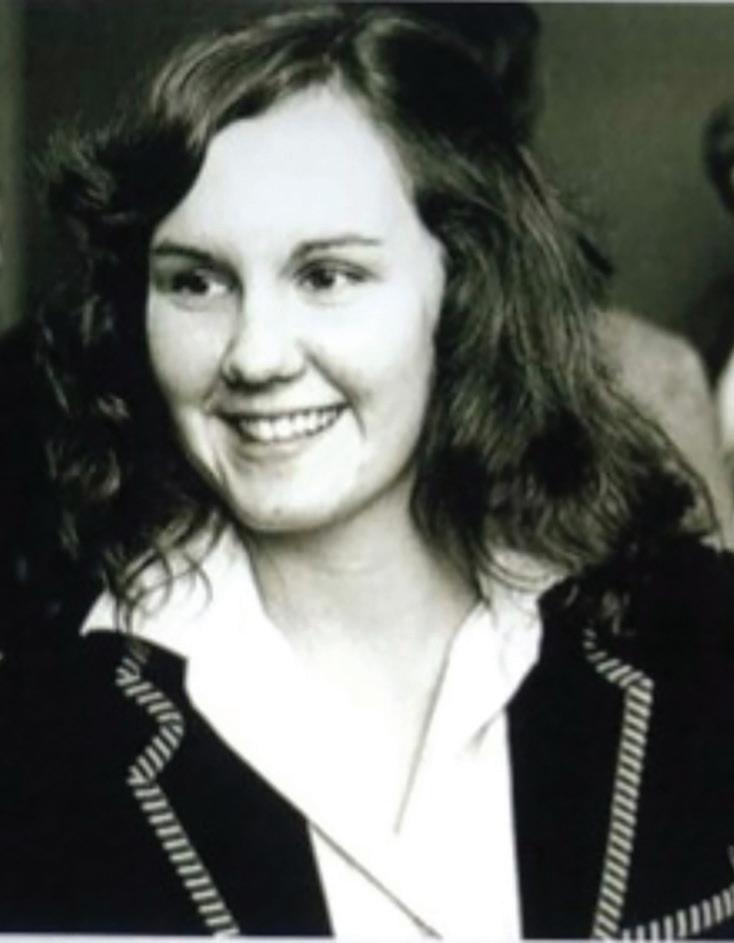
4 minute read
Two of the best jobs going: Mum of three and County Court Judge
from Torch Autumn 2020
by CareyGrammar
Kelly Southworth
Editor
Her Honour Judge Samantha Marks QC (1981), now a highly respected County Court Judge, was one of Carey’s first female students, starting in Year 11 in 1980. Her Honour Judge Marks was admitted to the Victorian Bar at the age of only 24. She was a barrister for 27 years, during which time she served as Convenor of the Women Barristers’ Association, and as a member of the Victorian Bar Council. After six years as a Queen’s Counsel (QC), in 2016 she was appointed as a Judge of the County Court of Victoria.
We were grateful to hear from Her Honour when she returned to Carey for our International Women’s Day breakfast earlier this year.
In Year 11, lured by a prize of three books, the then 16-year-old Samantha Kirwan-Hamilton entered a public speaking competition on behalf of Carey. After going on to represent Victoria in a national public speaking competition held at the Sydney Opera House, she realised that she had a natural ability to speak confidently in front of large groups of people on topics she was passionate about – leading her to decide to study law at the University of Melbourne after leaving Carey.
Samantha was admitted to the Victorian Bar in 1989, and after 27 years as a barrister, including six as a QC, she was approached in 2016 to consider becoming a judge. Hesitant at first (as she so loved being a barrister), she soon realised she could use the skills that made her such an effective barrister to endeavour to be a fair and respectful judge. ‘As a judge, I have to weed out who’s telling the truth and who’s misremembering, and how the law applies,’ Samantha said. ‘There will always be a loser in a case, but if people feel that their case has been dealt with fairly and they’ve really been listened to and treated with respect, they are far happier to accept the result.’

Above: (L–R) Jonathan Walter, Principal; Her Honour Judge Samantha Marks QC; Julianne Brandon, Director of Community Engagement; and Jane Simon, Chair of the Board, at Carey’s annual International Women’s Day Breakfast in March.
While a member of the Bar, Samantha got married and raised three children, balancing her work and role as a mother. ‘The best practice you could have to be a mum is to be a barrister, because you’re used to managing on very little sleep and a lot of pressure, and never quite knowing what the day might bring. And once you’ve helped a client resolve a multimillion-dollar dispute, it doesn’t seem so hard to make a three-year-old get into the clothes you put out for them – or maybe it’s the other way around!’
When Samantha first came to the Bar, there was limited support for working parents. Barristers were expected to work long hours and stay late if a court was still sitting. ‘And whether or not you had children at home, you sort of felt like you had to keep quiet about it’. She worked very long hours – but loved it.
Thankfully, a drive towards equity for women in the legal profession led to the establishment of organisations like Victorian Women Lawyers (VWL) and the Women Barristers’ Association (WBA), who have worked hard to support women lawyers and encourage a healthy work-life balance.
Samantha has used her experience as a working mother to encourage other young lawyers to pursue their career and family aspirations – showing them that it is possible to do both and be successful. While in the role of Convenor for the WBA, she was involved in supporting young barristers coming back to work from maternity leave, reassuring them that they now had ‘two of the best jobs going’.
Despite the success of groups like the VWL and WBA in supporting women, the legal profession is still currently dominated by men. Only 23 per cent of barristers in Australia are women, and an even smaller proportion of QCs, at only 12 per cent. Her Honour explained that significant work is being done to retain female lawyers in the profession, and she feels encouraged by how much has changed for women lawyers since she began practising. Today, of the 68 full-time judges in the County Court, 30 are women (44 per cent).
Having come to Carey in 1980, only a year after the beginning of co-education at the School, Samantha feels that her experience at Carey helped to prepare her for her career. At that time at Carey, there was only about one girl to every five boys in Years 11 and 12. Even though she felt nervous on her first day, once she arrived, she felt warmly welcomed despite being in a significant minority. She said, ‘When I became a barrister, I found myself in an environment that was the same ratio of males to females, but I already felt comfortable, so I knew I’d be fine!’
Although Samantha always felt well supported by solicitors sending matters to her, a solicitor she used to work with closely once informed her that there had been many occasions where, ‘I’ve wanted to give you work and haven’t been able to because the client didn’t want to give it to a woman.’ On the other hand though, Samantha expressed that sometimes she was at an advantage as a young barrister because, ‘If you’re the only person in a red suit in a sea of 40 grey suits, and you do a good job, you’re more likely to be remembered!’
Her Honour Judge Samantha Marks QC is an inspiring leader in the legal community. Carey hopes that her story of personal and professional success will inspire students in the career paths they choose.










